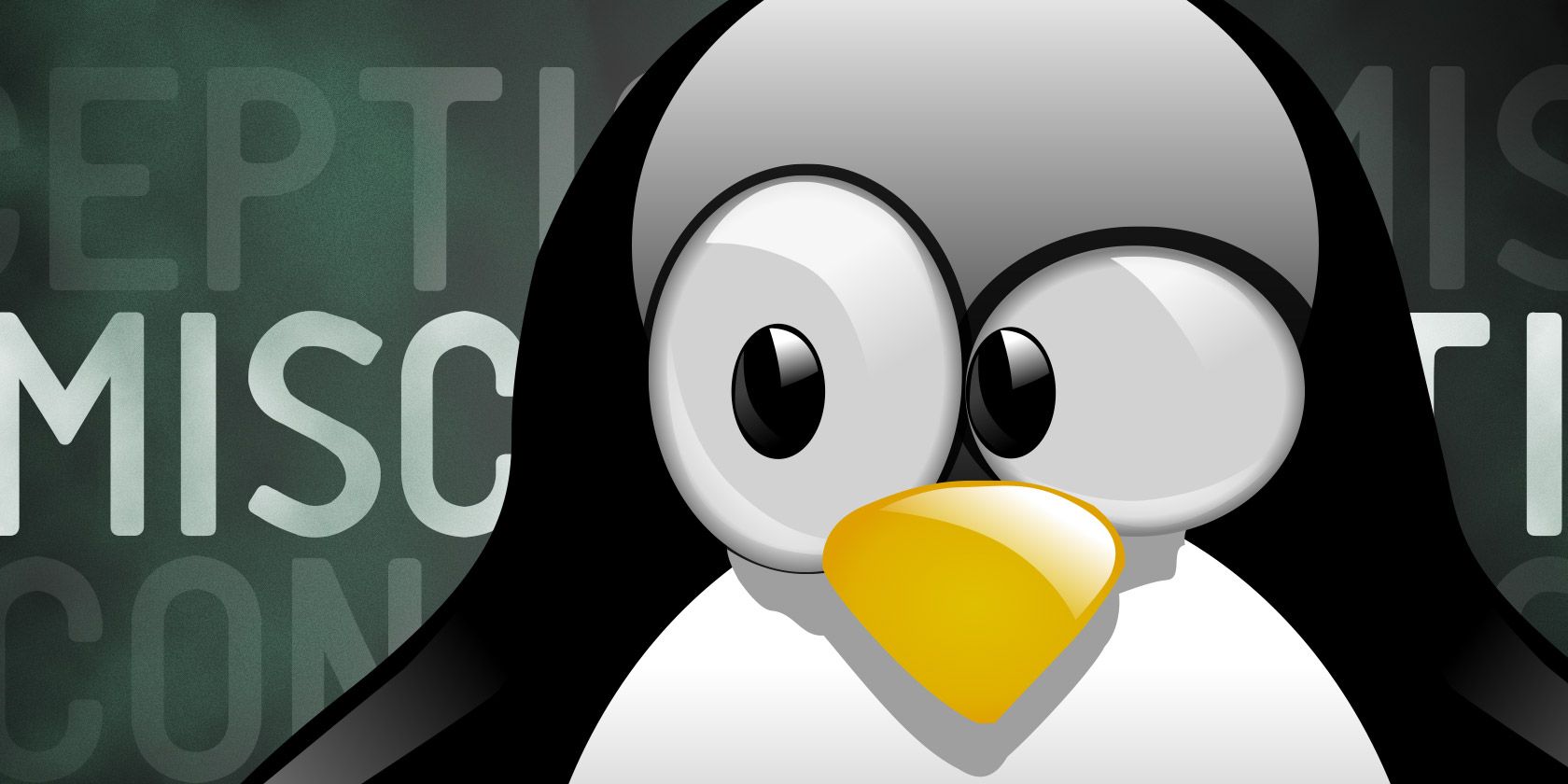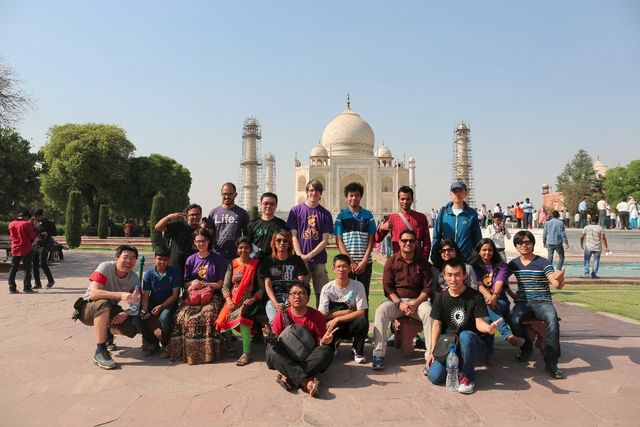Not that many people use Linux. True or false?
False.
I'll admit, it's hard to gauge how many users exist. Linux is free to download, and no single company has control. There are no sales figures to go by. TV and print ads aren't shaping your perception.
Yet even if most of the people you know may not use Linux, there may be one who does. And many more will have no idea they interact with Linux every single day.
As it turns out, Linux has millions of users. Know what else it has? Other misconceptions that continue to give people a false idea of what Linux is like.
Let's debunk a few, one by one.
1. Linux Is for Neckbeards
You may have heard that only a particular type of person uses Linux. Free and open source software is an area of interest only for neckbearded individuals. Behind this assertion is the implication that Linux is only for nerdy white men.
I've been using Linux for years, and I'm black. Yes, I'm a young man, and I do have geeky interests -- but I also like exploring nature, yoga, and other physical pursuits. None of this has diminished my interest in open source ideals.
But that's just one personal anecdote. Let's also consider parts of the world where Linux is seeing growth. The GNOME Project named its latest release after the capital of India, home of this year's GNOME.Asia Summit.
Prior years placed the conference in Beijing (China), HoChiMinh City (Vietnam), Seoul (South Korea), Depok (Indonesia), and elsewhere. Fedora held last year's FUDcon in Pune [Broken URL Removed] (India). It was in Managua (Nicaragua) the year before that.
Yes, the open source community does have a diversity problem. It could benefit from having more users and developers who are women. There could be more people of various gender, social, and ethnic backgrounds entering the fold.
Fortunately we already have initiatives such as Outreachy attempting to address this issue. In the meantime, let's not forget the non-neckbearded people with a deep appreciation for Linux.
2. Linux Is Made by Dudes in Their Bedrooms
Linux was born when Finnish (now Finnish American) developer Linus Torvalds started tinkering with the idea of making a free operating system while a student at the University of Helsinki. In a Usenet announcement, Torvalds described Linux as "just a hobby, won't be big and professional like gnu."
Linux has since grown into a hobby for some and a profession for others. Red Hat is a $2 billion company that creates a Linux distribution for corporate use. It also pays some of the developers who contribute to GNOME and other open source projects.
Linux powers most of the top 500 supercomputers, traffic control systems, self-driving cars, and the Large Hadron Collider.
There are still many lone developers writing patches and contributing code from their bedrooms. But countless companies have adapted Linux to meet their needs, and many of them are also investing in its future.
As for Torvards, the Linux Foundation now pays him to continue work on the Linux kernel. Hobby?
3. Linux Is Difficult to Use
Linux has a reputation of being for computer programmers and sysadmins. Part of this stems from the operating system's early days. What people ran shortly after that post on a mailing list was hardly ready for mainstream use. And while Linux is still gaining a foothold on desktops, it already powers the machines that run much of the Internet.
But you need zero coding skills to install or use Linux. Installation consists of downloading a file, installing it on a flash drive, restarting your computer, and following on-screen prompts. People who find this intimidating can buy a laptop with Linux pre-installed from companies such as System76 and ZaReason.
Afterward, you'll find plenty of applications to choose from. Many are more straightforward than their commercial counterparts. Without the effects of planned obsolescence driving developers to make big design changes every few years, applications rarely undergo drastic redesigns forcing you to relearn how to do everything.
In many ways, Linux is more welcoming to first-time computer users than Windows.
4. Linux Is Inherently Secure
You may have heard that Linux is safe because all of its code is open source. Having more eyes on code does increase the likelihood that someone will spot vulnerabilities, but this doesn't mean someone always will or that security risks don't exist on Linux. They do. Some vulnerabilities can go undiscovered for decades.
Part of this perception comes from the nature of the exploits that target Linux machines. Since Linux has such a small slice of desktop market share, hardly any malware exists for the platform. But that number isn't zero, which shows that the operating system isn't impenetrable.
Linux sees wider use by companies and governments. Attacks against these institutions won't lead to a virus on your computer, but it could result in someone acquiring your passwords or data from other parties. Heartbleed was an example.
Sometimes the servers that distribute system updates get compromised. Occasionally a piece of software may get fixed, but a distribution has yet to package the update. Slip-ups happen.
Linux may be a relatively secure operating system that benefits from being open source, but that does not make it bullet-proof. If it were, there wouldn't be a reason to make specialized distributions for the most paranoid among us.
5. Linux Is Ugly
Since Linux isn't a commercial product, its designers haven't had to focus on making software visually enticing. That's good, because Linux products typically have fewer resources to work with.
In the early days, Linux desktop environments were rough around the edges. Many of them still are today. But many projects are focused on making open source desktops easier on the eyes.
The modern GNOME desktop environment provides a polished and simple interface with animations. KDE is shinier and more customizable, with themes and options to get your computer just the way you like it. Elementary OS takes the polish of a MacBook but adds some open source flair.
What looks beautiful to some is garish to others. Many people can do without the pomp and circumstance of Windows 10 and Mac OS X. For them, basic (and perhaps dated-looking) options still exist such as XFCE and LXDE. Developers who love the terminal can use the likes of XMONAD and the Awesome Window Manager. Either one will make you look like that hacker in some movie you saw.
With so many interfaces to choose from, there's a good chance one will appeal to you.
6. Linux Is Not for Gamers
Most PC games run on Windows. A smaller number are available for Mac. Even fewer make their way to Linux.
But let's be honest, that still leaves plenty of options to keep gamers satisfied.
Things have changed in recent years. Linux graphic drivers have come a long way. Steam is easy to install, and there are several other distribution platforms that offer Linux titles. On computers that you use primarily for gaming, you can run versions of Linux built for gaming. Some of them come with many free and open source titles pre-installed.
Will you be able to play every AAA title that gets announced for PC? No. But gamers who adjust their expections are having plenty of fun on their Linux these days.
7. You Get What You Pay For
This is literally not true. I have Linux on my computer. I did not buy it.
Kidding aside, this notion implies that Linux is inferior because it doesn't cost anything. The software is supposedly not as good as commercial alternatives. Sometimes this is true, but it's not always the case.
Many people choose to use open source applications instead of paid options, even on Windows and Mac OS X. Cost isn't always the factor. VLC can play seemingly any video. GIMP is a great way to edit pictures. Firefox remains one of the best browsers around.
Microsoft makes software that powers servers, but companies have adopted Linux because they view it as the better tool for the job. Some programmers feel the same way.
Commercial operating systems do come with an extra layer of polish, but Windows isn't better put together than Chrome OS and Android. Those latter two are both based on Linux, and they're free.
Some distributions are better than others. Ultimately, Linux is what you make it.
Linux Is Not for Me
Or is it? I'm willing to bet that with the right introduction, you could get by using Linux. You may even fall in love. The situation is rarely what it seems on the surface. The same may be true in this case too.
What fallacies have you heard about Linux or other open source desktops? What questions do you have yourself? This is a safe space. I'd love to hear your thoughts!
Image credit: Strange suspicious businessman, GNOME.Asia Summit 2016, Back view of modern programmer sitting and writing code in dark room, schoolboy behind his computer





